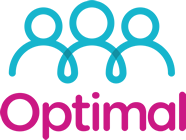The Change Curve
The Change Curve is a popular and powerful model used to understand the stages of personal transition and organisational change. It helps you understand how people will react to change, so that you can help them make their own personal transitions, and make sure that they have the help and support they need.
There are many variations and adaptations of the Change Curve and it is widely used in organisations and change management. Psychiatrist Elisabeth Kubler – Ross put the work into the creation of the curve resulting from her work on personal transition in grief and bereavement.
The Change Curve describes the four stages which individuals will go through as they adjust to change.
Step 1 – Peoples initial reaction when change is first introduced is shock or denial, as they react to the challenge to the status quo.
Step 2 – Once the reality of change starts to hit, people tend to react negatively. They may fear the impact; feel angry; and actively resist or protest against the changes. For as long as people resist the change and remain at stage 2, the change will be unsuccessful, at least for the people who react in this way. This is a stressful and unpleasant stage. For everyone, it is much healthier to move to stage 3 where acceptance from individuals is received.
Step 3 – People start to accept the changes and learn to let go of the past and analysing what’s good/bad of the change and working out how they need to adapt to the change.
Step 4 – Accept and embrace the changes and it’s only at this stage where the organisation can really start to benefit.
Using the Change Curve
Having knowledge of the change curve can help you plan change with minimal negative impact. The aim is to make the curve shallower and narrower.
Here is my advice for each stage:
Step 1 – At the very outset people need information. They need to understand what is happening, why it is happening and how it will happen. Communication is important at this stage however we need to ensure it is not overwhelming. We need to communicate frequently and breaking the information down is a great way to make it digestible and easier for people to understand. We need to maintain open dialogue and let everyone know how to get help, and ask any questions that may arise.
Step 2 – Sometimes referred to as the ‘danger zone’ because if this stage is badly managed the organisation may descend into crisis or chaos. Now that everyone has been informed you need to carefully consider the impacts and objections that people may have and prepare for this. It’s important to make sure that individual concerns are addressed early with clear communication and support. Listen and observe how people are feeling and make sure this is acknowledged.
Step 3 – As acceptance grows the organisation is on its way to making success with the change. Now you can begin testing and exploring what the change means in practice. What does the new world look like? This is very easily managed through well planned training initiatives. It can take time for some people to adjust to change and produce results so the aim of this stage is to fully prepare and equip all employees so that there is minimal drop in outputs throughout the transitional period.
Step 4 – You will know when you have reached the final stage as you will start to see the benefits you worked so hard for. The Organisation starts to become productive and efficient and you can all celebrate the success!
At Optimal PBS not only are we experienced in the field of Change Management we now use that experience to share our knowledge and best practice in the form of one-to-one coaching and training programmes. Why not take advantage of our free 30 minute consultation to find out how to best equip yourself and your organisation for the future? Call Optimal PBS on 01422 897 673 or email enquiries@optimal-hr.co.uk to get started.










